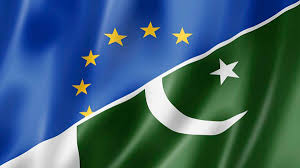
Strengthening Economic Ties
Pakistan and the European Union (EU) have recently signed a major trade deal that is expected to significantly enhance economic relations between the two entities. This agreement is seen as a milestone in Pakistan’s efforts to expand its trade partnerships and diversify its economic base. The trade deal aims to facilitate smoother and more efficient exchanges of goods and services, while also providing Pakistan with greater access to European markets. By reducing tariffs and simplifying customs procedures, the deal is designed to create a more favorable environment for trade and investment, benefiting industries across both regions.
Boosting Exports and Economic Growth
The trade deal is expected to provide a much-needed boost to Pakistan’s export sector, which has faced challenges in recent years. Under the agreement, Pakistani goods such as textiles, agricultural products, and manufactured goods will have improved access to European markets, increasing Pakistan’s export potential. With Europe being one of the largest consumer markets in the world, the deal presents a significant opportunity for Pakistan’s manufacturers and exporters to expand their reach. The growth in exports is anticipated to help Pakistan’s economy recover from ongoing challenges, contributing to job creation and increased industrial production.
Supporting Sustainable Development
One of the key features of the trade agreement is its focus on promoting sustainable development. The deal includes provisions aimed at enhancing environmental standards and promoting socially responsible business practices. The EU has emphasized the importance of adhering to international labor standards and ensuring that trade practices are environmentally friendly. For Pakistan, this presents an opportunity to align with global sustainability trends, while also ensuring that local industries adhere to higher standards. The agreement’s emphasis on sustainable practices is expected to foster a culture of corporate responsibility in Pakistan’s growing industries.
Strengthening Bilateral Relations
This major trade deal also represents a step toward strengthening bilateral relations between Pakistan and the EU. In addition to the economic benefits, the agreement enhances political and diplomatic ties, paving the way for future cooperation in other sectors such as security, technology, and climate change. For the EU, engaging with Pakistan, a key player in South Asia, offers strategic advantages, especially in terms of regional stability and security. The trade deal thus acts as a bridge for greater cooperation on a wide range of issues, further cementing Pakistan’s position as an important partner for the European Union in the region.
Long-Term Economic Impact
The long-term economic impact of the trade agreement is expected to be profound. As Pakistan deepens its trade relations with Europe, the country is likely to see increased foreign direct investment (FDI) in various sectors, including manufacturing, agriculture, and technology. Moreover, the deal provides a framework for continued trade dialogue, allowing both sides to address emerging challenges and opportunities. Over time, the agreement is expected to foster economic modernization in Pakistan, with increased access to European technology, expertise, and capital. As a result, the trade deal holds the potential to drive sustainable economic growth and development in Pakistan for years to come.
Find out how to turn your PUBG skills into earnings with our tutorial

